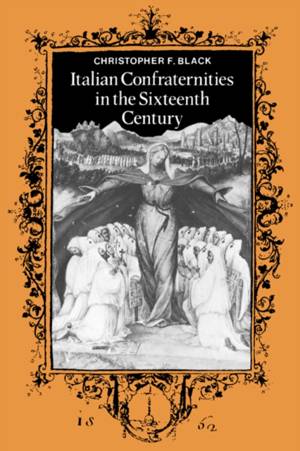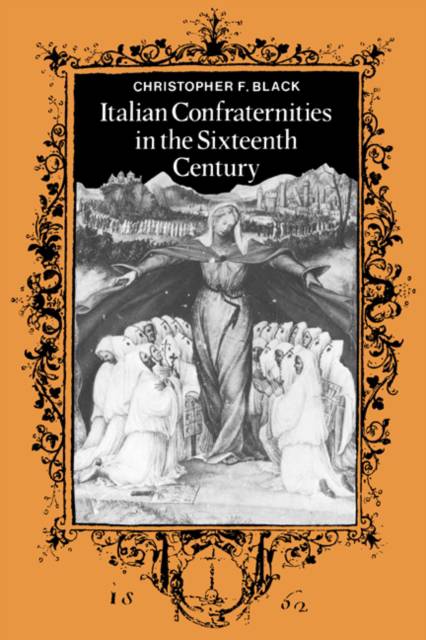
Je cadeautjes zeker op tijd in huis hebben voor de feestdagen? Kom langs in onze winkels en vind het perfecte geschenk!
- Afhalen na 1 uur in een winkel met voorraad
- Gratis thuislevering in België vanaf € 30
- Ruim aanbod met 7 miljoen producten
Je cadeautjes zeker op tijd in huis hebben voor de feestdagen? Kom langs in onze winkels en vind het perfecte geschenk!
- Afhalen na 1 uur in een winkel met voorraad
- Gratis thuislevering in België vanaf € 30
- Ruim aanbod met 7 miljoen producten
Zoeken
€ 183,45
+ 366 punten
Uitvoering
Omschrijving
Confraternities were - and are - religious brotherhoods for lay people to promote their religious life in common. Though designed to prepare for the afterlife, they were fully involved in the social, political and cultural life of the community and could affect all men and women, as members or as the recipients of charity. Confraternities organised a great range of devotional, cultural and indeed artistic activities in addition to other functions such as the provision of dowries and the escort of condemned men to the scaffold. Other works have studied the local activities of specific confraternities, but this is the first to attempt a broad survey of such organisations across the breadth of early modern Italy. Christopher Black demonstrates clearly the extent, diversity and influence of confraternal behaviour, and shows how such brotherhoods adapted to the religious and social crises of the sixteenth century - thus illuminating current debates about Catholic Reform, the Counter-Reformation, poverty, philanthropy and social control.
Specificaties
Betrokkenen
- Auteur(s):
- Uitgeverij:
Inhoud
- Aantal bladzijden:
- 336
- Taal:
- Engels
Eigenschappen
- Productcode (EAN):
- 9780521364874
- Verschijningsdatum:
- 15/06/1989
- Uitvoering:
- Hardcover
- Formaat:
- Genaaid
- Afmetingen:
- 152 mm x 229 mm
- Gewicht:
- 662 g

Alleen bij Standaard Boekhandel
+ 366 punten op je klantenkaart van Standaard Boekhandel
Beoordelingen
We publiceren alleen reviews die voldoen aan de voorwaarden voor reviews. Bekijk onze voorwaarden voor reviews.









